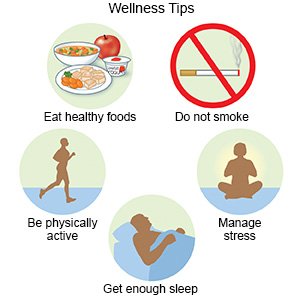Adult-Onset Still Disease
Medically reviewed by Drugs.com. Last updated on Aug 4, 2025.
Adult-onset Still disease (AOSD) is a rare autoinflammatory disease. This means your immune system makes too much inflammation and attacks its own healthy tissues, such as your joints and muscles. Organs such as your heart, liver, or kidneys may also be affected.
DISCHARGE INSTRUCTIONS:
Seek care immediately if:
- You have trouble breathing.
Call your doctor or rheumatologist if:
- You have trouble managing stress.
- You have flares more often, or flares last longer than usual.
- You are not able to manage flares with your medicine.
- You have new or worsening symptoms.
- You have questions or concerns about your condition or care.
Medicines:
- NSAIDs help decrease swelling and pain or fever. This medicine is available with or without a doctor's order. NSAIDs can cause stomach bleeding or kidney problems in certain people. If you take blood thinner medicine, always ask your healthcare provider if NSAIDs are safe for you. Always read the medicine label and follow directions.
- Steroids may be given to reduce swelling. Do not stop taking steroids suddenly. A sudden stop can be dangerous. Your healthcare provider will help you take less medicine over time until you can stop safely.
- Disease-modifying antirheumatic drugs (DMARDs) help slow joint damage, and relieve pain and inflammation. DMARDs also help protect your joint function.
- Take your medicine as directed. Contact your healthcare provider if you think your medicine is not helping or if you have side effects. Tell your provider if you are allergic to any medicine. Keep a list of the medicines, vitamins, and herbs you take. Include the amounts, and when and why you take them. Bring the list or the pill bottles to follow-up visits. Carry your medicine list with you in case of an emergency.
Manage AOSD:
- Rest as needed. You may feel more tired than usual. Try not to do too much during the day. You may need to rest your hands or wrists if you work on a computer.
- Manage stress. Stress is the main trigger for AOSD flares. Try listening to music, talking to someone, or doing things that make you feel calm. Talk to your healthcare provider if you are having trouble managing stress.
- Apply ice. Ice helps relieve joint pain and reduces swelling. Use a cold pack, or put crushed ice in a plastic bag. Cover it with a towel before you apply it. Apply ice for 15 to 20 minutes every hour, or as directed.
- Apply heat. Heat helps relieve joint and muscle pain. Use a heat pack, or soak a wash cloth in warm water. Wring out the extra water before you apply it. Apply heat for 20 minutes every hour, or as directed.
- Be physically active, as directed. Physical activity, such as exercise, may help your joints feel less stiff. Exercise can also help you manage stress. Ask your provider how much activity you need each day. Your provider can also tell you the activities that are best for you. You will want to move your joints and muscles, but you need to be careful to prevent injury.
- Keep taking your medicine, even if you feel better. AOSD flares come and go. In between flares, you may feel well. It is important to keep taking your medicine as directed. DMARDs need to be taken to help keep AOSD from getting worse. Steroids help reduce inflammation. Do not stop taking steroids suddenly. A sudden stop can be dangerous. Your provider will help you take less medicine over time until you can stop safely.
 |
Treatment options
The following list of medications are related to or used in the treatment of this condition.
Follow up with your doctor or rheumatologist as directed:
You may need ongoing tests or treatment. Your healthcare provider may also refer you to a specialist. Write down your questions so you remember to ask them during your visits.
© Copyright Merative 2025 Information is for End User's use only and may not be sold, redistributed or otherwise used for commercial purposes.
The above information is an educational aid only. It is not intended as medical advice for individual conditions or treatments. Talk to your doctor, nurse or pharmacist before following any medical regimen to see if it is safe and effective for you.
Further information
Always consult your healthcare provider to ensure the information displayed on this page applies to your personal circumstances.
